
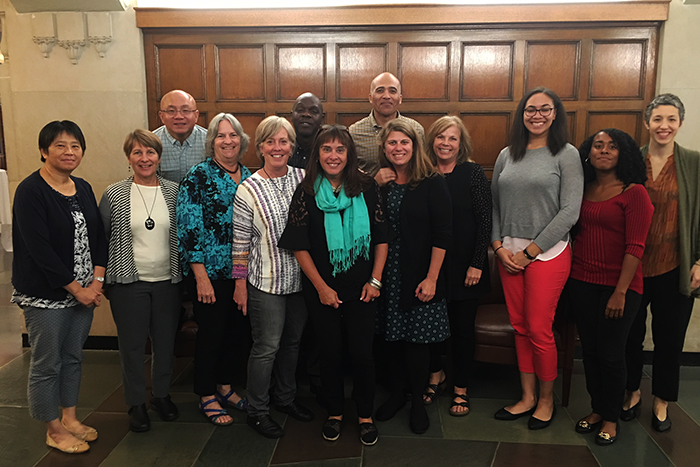 |
|
|
As an extension of its community-based participatory research (CBPR) capacity-building efforts, the Detroit Community-Academic Urban Research Center (Detroit URC) has launched a new five-year, $2.8 million study called Measurement Approaches to Partnership Success (MAPS): An Innovative Tool for Assessing Long-Standing CBPR Partnerships.
Funded by the National Institute of Nursing Research (NINR) as part of its “Advancing Science, Improving Lives” Strategic Plan, the MAPS project aims to develop a clear definition of success in long-standing CBPR partnerships, a specific set of factors that contribute to it, and a practical tool for measuring these factors that others across the U.S. can use to assess and strengthen their own partnership efforts to achieve health equity.
As the driving force behind MAPS, the Detroit URC Board is overseeing all aspects of the MAPS project. The Board is comprised of representatives from the University of Michigan (U-M) Schools of Public Health (SPH), Nursing, and Social Work, and from the following organizations in Detroit:
- Communities In Schools - Sonja Allen, Chief Executive Officer (CEO)
- Community Health and Social Services, Inc. – Richard Bryce, Chief Medical Officer
- Detroit Health Department – Carla Bezold, Chief Epidemiologist, Detroit Health Department
- Detroit Hispanic Development Corporation (DHDC) - Angela G. Reyes, Executive Director and Founder
- Detroiters Working for Environmental Justice – Guy Williams, President and CEO
- Eastside Community Network - Suzanne Cleage, Director of Neighborhood Growth
- Friends of Parkside – Zachary Rowe, Executive Director
- Henry Ford Health System - Kimberlydawn Wisdom, Senior Vice President of Community Health Equity and Chief Wellness and Diversity Officer
- Institute for Population Health - Gwendolyn Daniels, Interim CEO
- Latino Family Services - Lidia Reyes-Flores, Executive Director
- Neighborhood Service Organization - Linda Little, President & CEO
The MAPS project is receiving additional input and guidance from a 16-member Expert Panel, consisting of an equal number of community and academic members from across the U.S. The three academic Principal Investigators for the project are as follows:
- Barbara L. Brush, PhD, ANP-C, FAAN is the Carol J. and F. Edward Lake Professor in Population Health in the U-M School of Nursing, and former Faculty Director of the Michigan Institute of Health and Clinical Research’s Public Partners and Community-Based Organizations section. She brings years of community-engaged research and practice experience to the study team.
- Barbara A. Israel, DrPH is a Professor in the U-M SPH Department of Health Behavior and Health Education (HBHE), Director of the Detroit URC, and a leading scholar in CBPR. Dr. Israel is also the co-editor of Methods for Community-Based Participatory Research for Health. She has extensive experience in the conceptualization and implementation of CBPR efforts, including etiologic and intervention research, partnership evaluation, dissemination, translation and capacity building.
- Laurie Lachance, PhD, MPH is Associate Research Scientist at the U-M SPH Department of HBHE and Evaluation Director of the Center for Managing Chronic Disease at U-M SPH. Dr. Lachance has extensive experience conducting evaluations for large-scale, national public health programs and partnership initiatives that work toward increasing health equity. Her work utilizes community-based approaches and includes efforts aimed at policy, systems, and health behavior change.
Community-based co-investigators include Detroit URC Board members Angela G. Reyes, MPH, of DHDC and Zachary Rowe, BBA, Friends of Parkside.
The MAPS team also includes these researchers from the U-M SPH Department of HBHE: Professor Cleopatra Caldwell, PhD., Director of the Center for Research on Ethnicity, Culture and Health; Research Scientist Chris Coombe, PhD, Detroit URC; Statistician Graciela Mentz, PhD; Research Fellow Michael Muhammad, PhD; and Professor Amy Schulz, PhD., Director of the Healthy Environments Partnership (HEP). It also includes Professor Shoou-Yih (Daniel) Lee, PhD., from the University of Michigan School of Public Health. and Professor Yuh-Pey (Anne) Buu Ph.D., from the University of Texas Health Science Center, School of Public Health.
MAPS was officially launched in August 2016. The project’s Federal Award Identification Number is RO1NR016123. For more information, please contact MAPS Project Manager Megan Jensen at This email address is being protected from spambots. You need JavaScript enabled to view it. or (734) 764-6029.
Related Links:
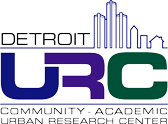



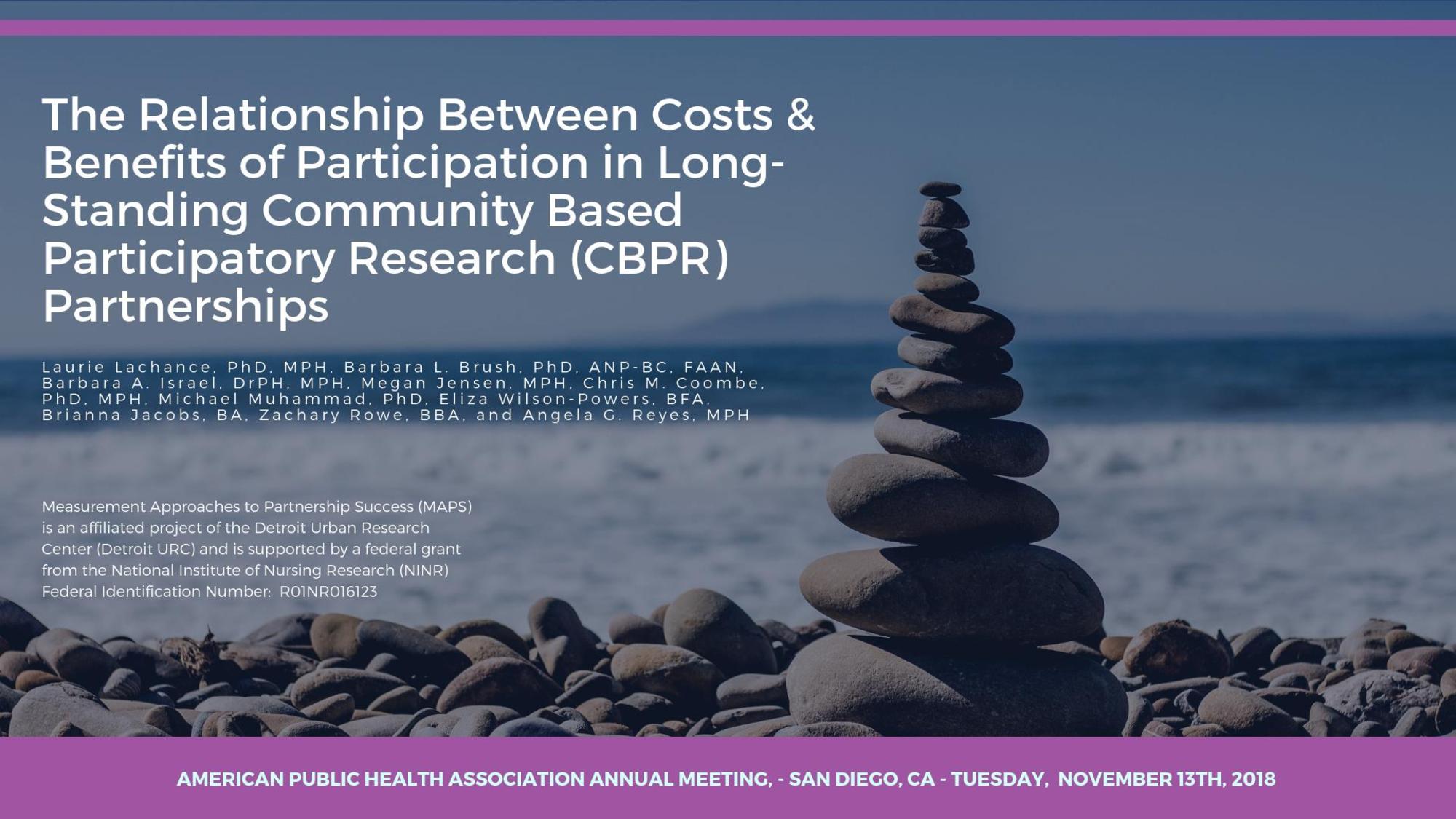
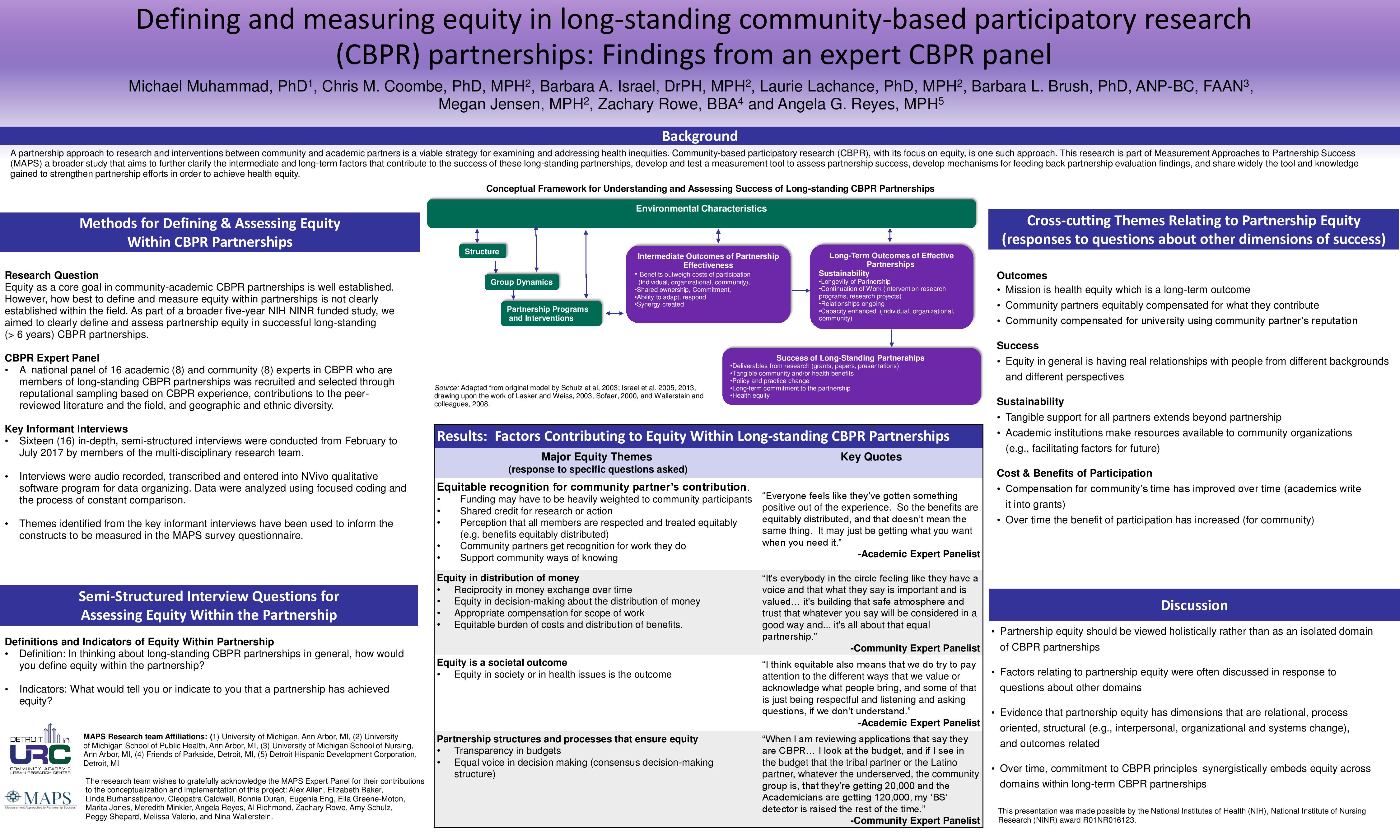
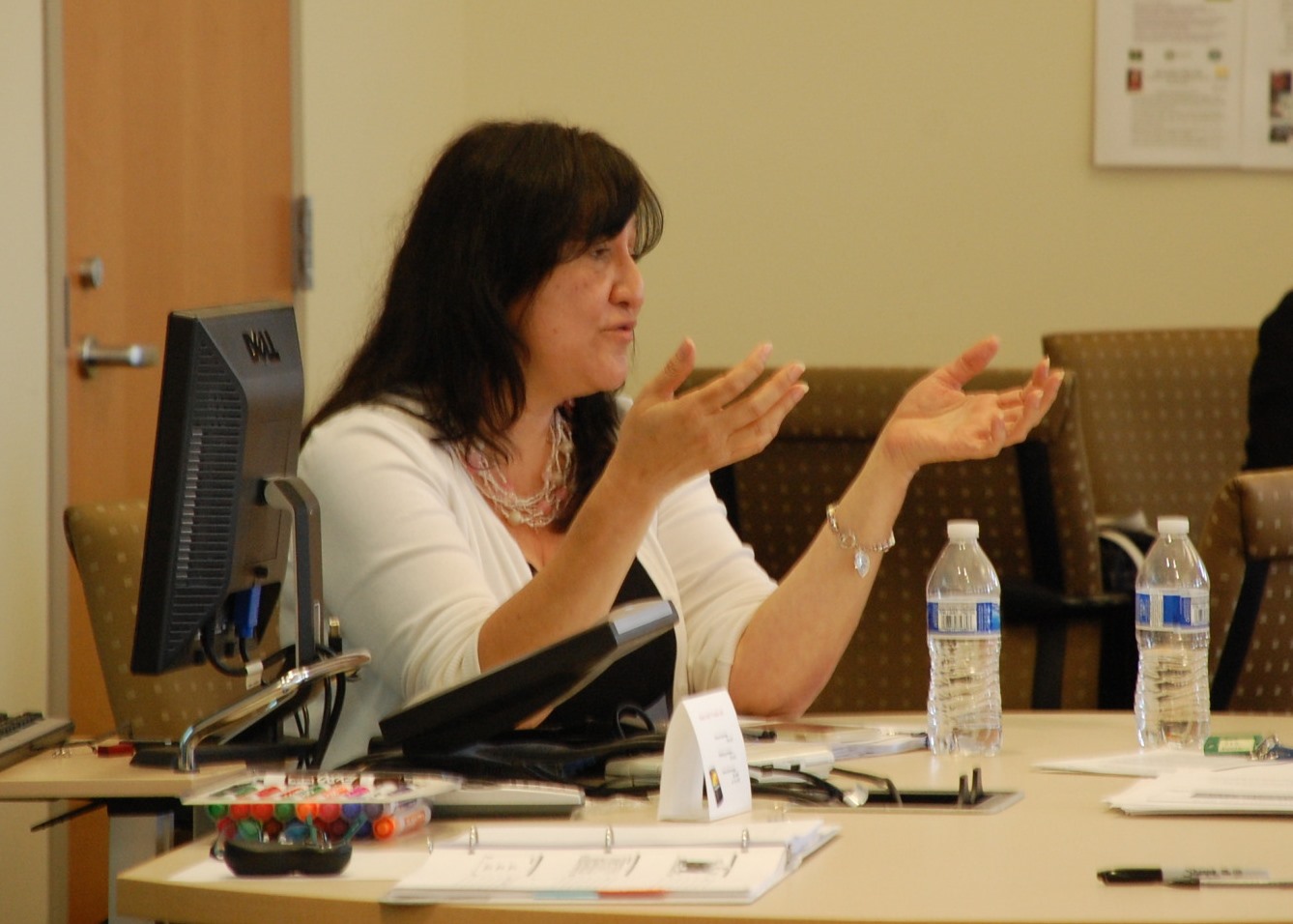 The components and core curriculum of the CBPR Partnership Academy are described below. Although we are not currently accepting applicants, we hope to offer the program in the near future. Please watch the Detroit URC home page for future announcements. We also offer an
The components and core curriculum of the CBPR Partnership Academy are described below. Although we are not currently accepting applicants, we hope to offer the program in the near future. Please watch the Detroit URC home page for future announcements. We also offer an 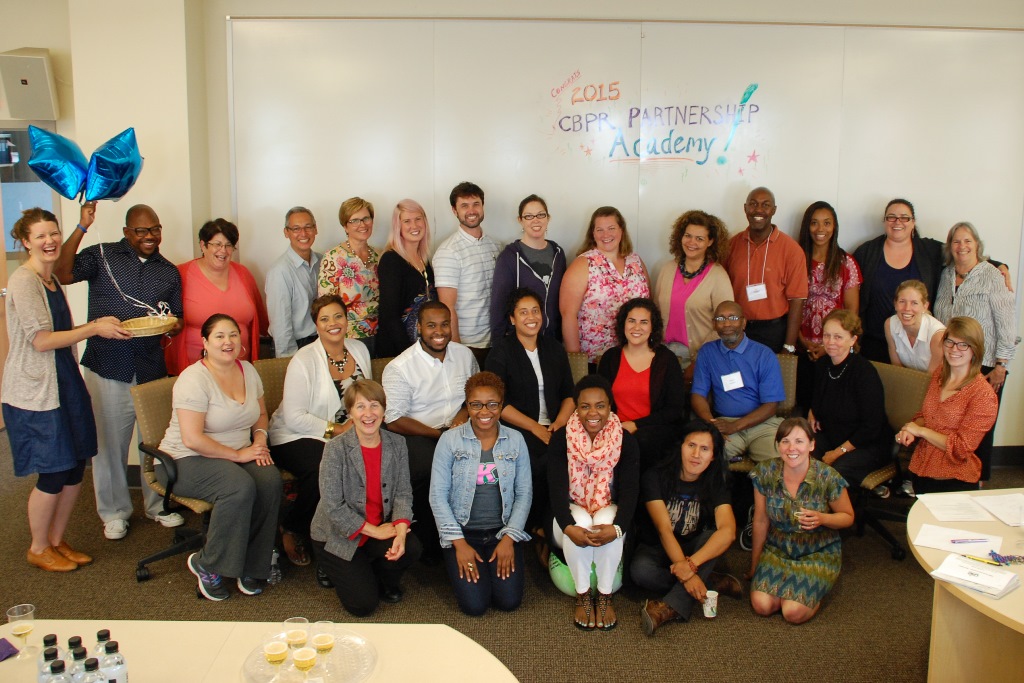



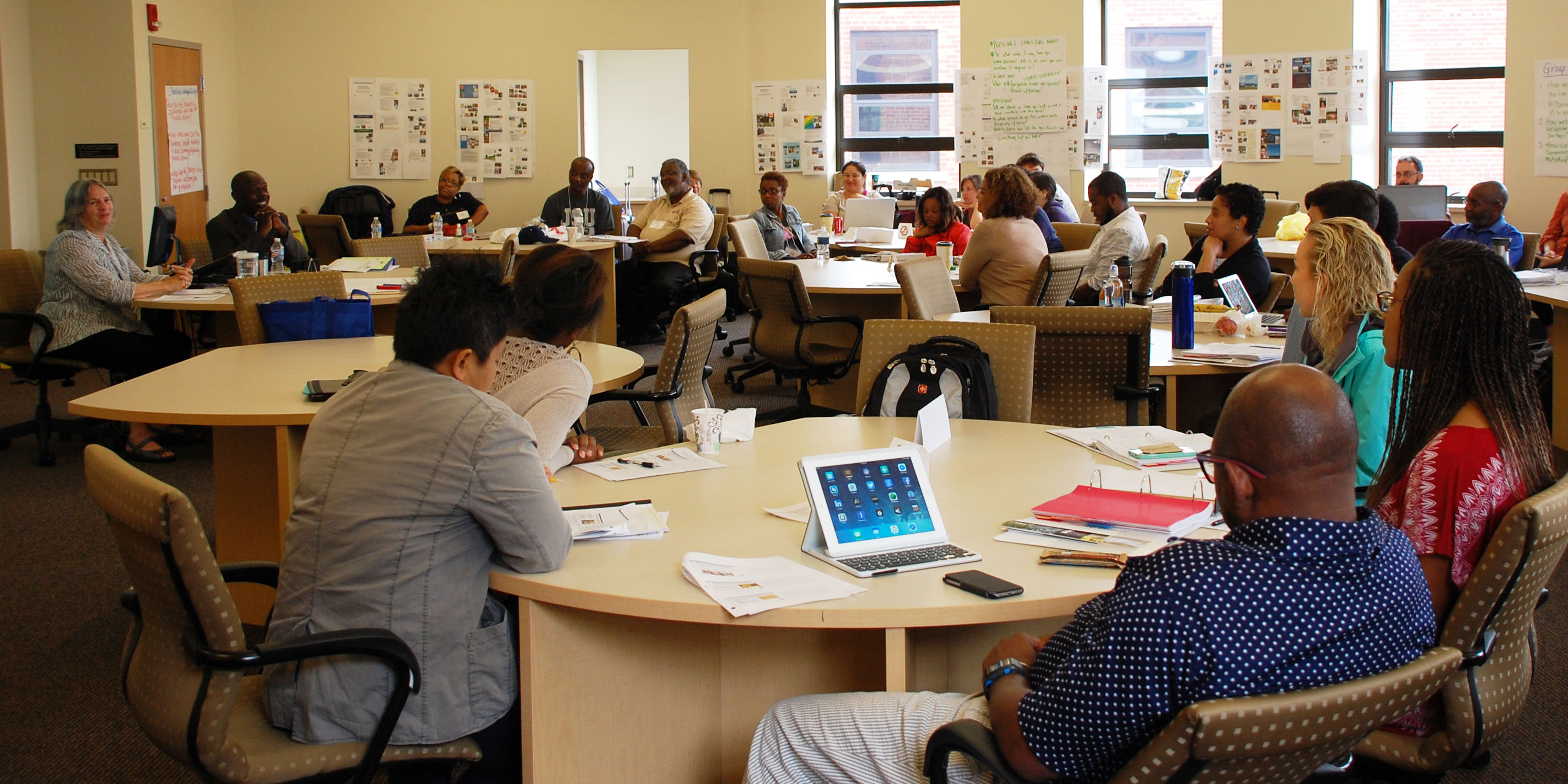
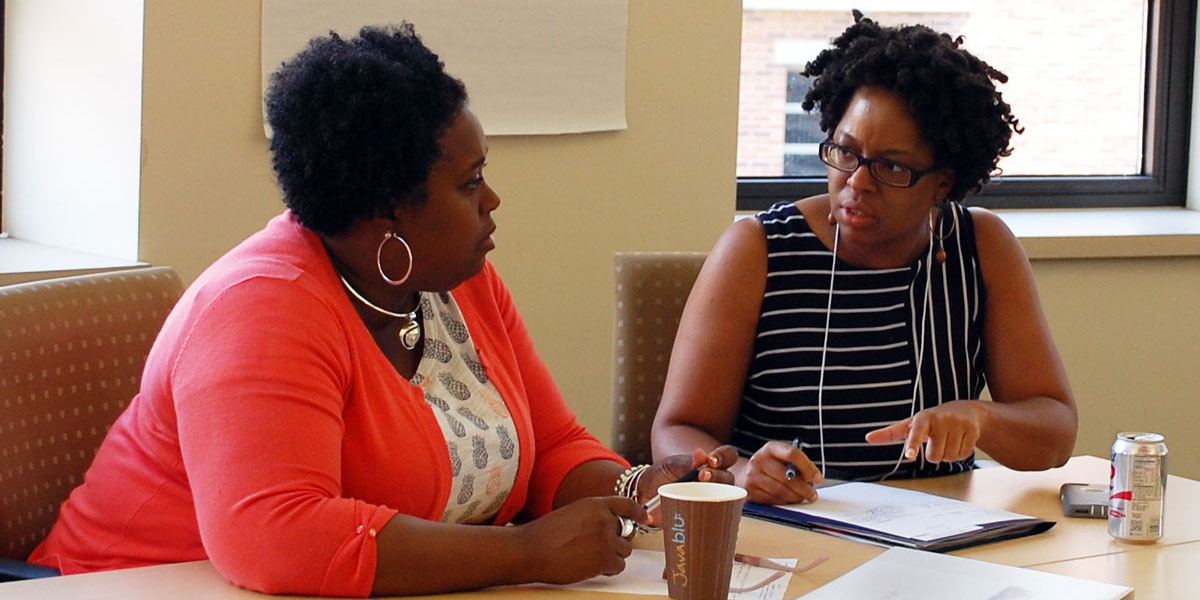


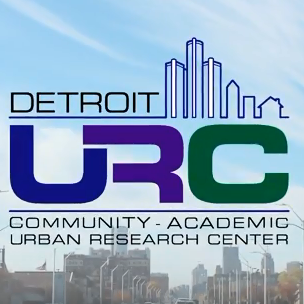


![[USE THIS] 2017 DWEJ logo_Horizontal](/cache/widgetkit/gallery/44/[USE THIS] 2017 DWEJ logo_Horizontal-64638c1e16.png)
